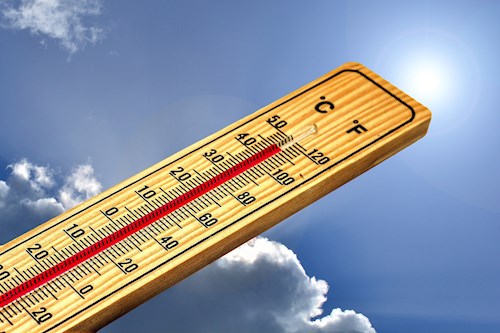

When we think about climate change impacts in the Midwest we often think about flooding; you might be surprised to learn that, in reality, extreme heat represents a bigger risk.
Extreme heat is the leading weather-related cause of death in the US. And extreme heat is a bigger risk in places like Dane County than in notoriously hot places like Phoenix, in part because extreme heat happens less frequently in our area.
Unfortunately, climate change means that extreme heat is happening more frequently in our region. Research from the Wisconsin Initiative for Climate Change Impacts suggests we are already seeing an increase in very hot days where it does not cool off at night.
University of Wisconsin UniverCity Alliance staff have facilitated a coalition of climate scientists, health experts and sustainability professionals who are exploring health related risks associated with extreme heat in both Dane and Milwaukee Counties. That coalition--the Wisconsin Heat Health Network--met virtually for more than a year to explore heat-related risks in our communities. The research indicates that extreme heat is a risk in our communities and that both climate change and urban heat island effect play a role in increasing that risk.
Download this summary to better understand the risks in Dane County.
To learn more about the research to date, watch this 2022 UW Madison SAGE Weston seminar with Dr. Larry Kalkstein or check out this 2021 virtual meeting where researchers talk about their findings and respond to questions from local stakeholders.
Dane County's Emergency Management Department already maintains a hazard warning system for heat waves.
Additionally, relative to the longer-term threats of extreme heat, Dane County is working with the City of Madison and other stakeholders as part of the Wisconsin Heat Health Network to explore a variety of ways to respond to extreme heat risks. Proactive efforts can save lives, making our community more resilient in the face of climate change.